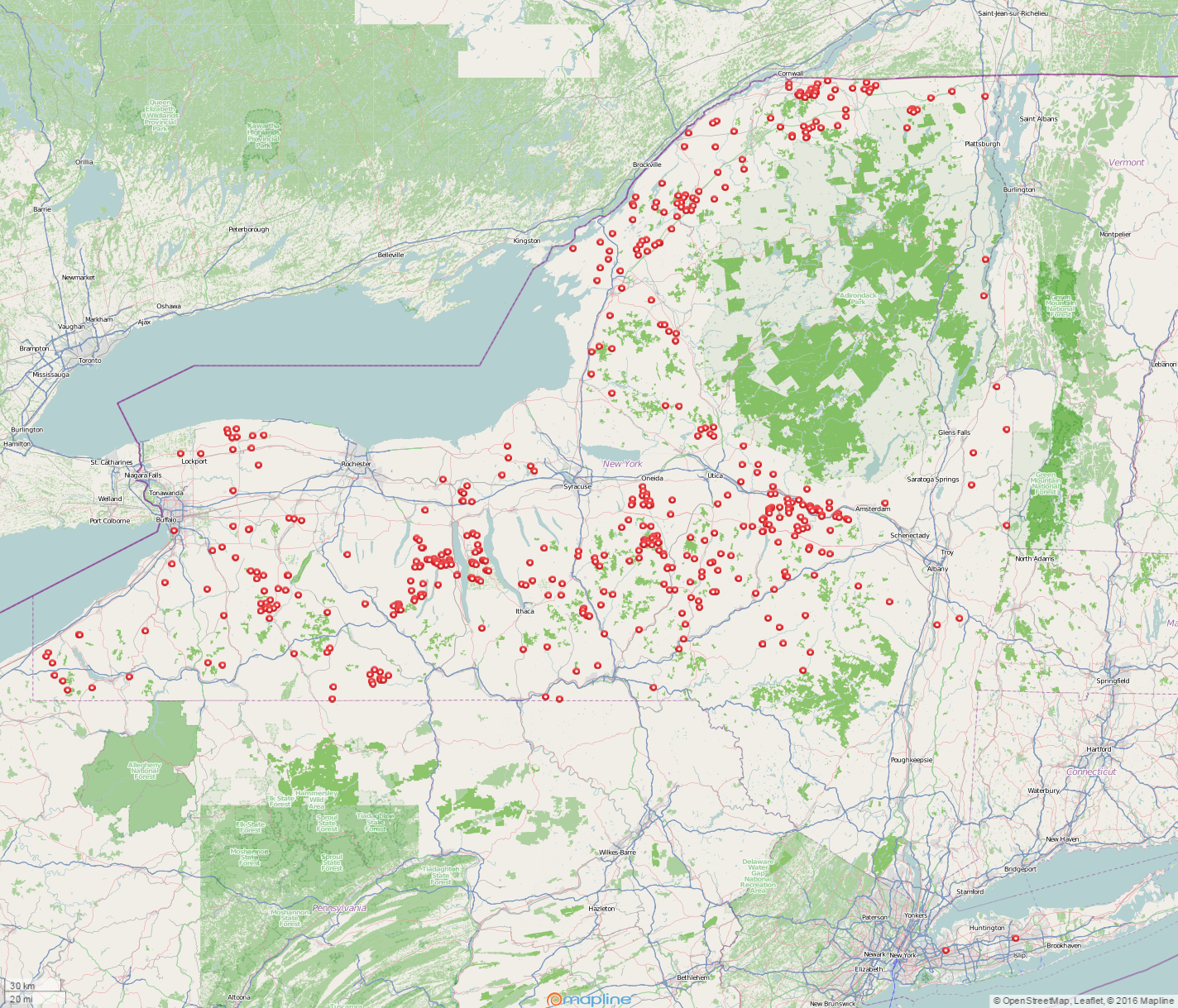Find information on 2019 Meetings here
New York Certified Organic
is a group of organic grain and dairy farmers in New York that has been meeting together since 1994 for daytime meetings during the winter months. We first started meeting in each other’s kitchens, a handful of organic grain farmers who needed to cooperate on organic certification so we could export our soybeans to Japan. We rapidly grew in number, exceeding the capacity of all our available kitchens, and moved our meetings to Cornell AgriTech (formally known as the NY Ag Experiment Station) in Geneva in 1996. We have been meeting there since!
NYCO meets monthly during the winter, typically drawing a crowd of 75-100 farmers. The meetings are free and open to the public. There is no formal ‘membership’ in NYCO, we welcome everyone who wants to come – long-time organic farmers, recent converts, and conventional farmers ‘testing the organic waters’, all who freely and equally share their information, experience and advice. There is always LOTS of talking, useful information shared, and questions answered. These are meetings where ‘active audience participation’ is not only encouraged, it is expected!
There is no cost for attending the NYCO meetings. We just ask you to bring a dish of something good to share with everyone at our potluck lunch. We always allow plenty of time at lunch for talking, making friends, enjoying good homemade food, and being a community of like-minded people.
Typically, we have a formal presentation in the morning on a specific focus topic of interest/importance, then lunch, followed by open discussion in the afternoon when we cover both the morning’s focus topic and anything else organically-oriented that we feel like talking about. Meetings run from 10 AM to about 3:30 PM.
NYCO meetings focus on practical information and expertise on organic weed control, soil fertility management, pest control, crop production, dairy issues and grazing, alternative crops, marketing and pricing, machinery and grain storage. We are usually joined by Cornell faculty specialists, extension, industry, and other ‘ag professionals’ but this is a group of farmers, led by farmers, with topics designed for and by farmers, with more time for open discussion than for ‘expert presentations’. We are not associated with any certification agency, or other organization.
Resources from Past Meetings
Lakeview Organic Grain:
Check out their website for lots of valuable resources.
NYCO Meeting (January 2019):
Compost Bedded Pack Barn Info Sheet
Bedded Pack Management System Case Study
Consider Bedded Pack Barns for Cow Comfort and Manure Management
NYCO meeting (February 2015):
Tom Kilcer from Advance Ag Systems talked about forage management required for all forage diets or high forage diets, discussing new research involving double cropping winter forages, such as clover, sorghum , and triticale. Also, visiting from Austria, Martin Wagner from Einbock went over his companies new innovative cultivation and planting equipment for pastures.
NYCO meeting (March 2014):
Hay in a Day Recordings, Tom Kilcer
NYCO meetings (2012):
Organic Weed Control Equipment
recorded webinar by Peter Martens
NYCO meetings (2010)
Keys to Profitable Dairy Grazing Operations
talk by Jason Karszes
Keys to Profitable Dairy Grazing Operations Presentation
presentation by Jason Karszes
Using Records on My Farm
presentation by Fay Benson
Mycotoxins: What happened to our feed this year and what can we do now?
presentation by John Kelly
NYCO meeting (12.10.2009):
No tilling forage brassicas into existing pasture
presentation by Fay Benson
Yield of corn and spelt in relation to nutrient inputs
presentation by Chuck Mohler
Fertility Effects on Yield of Spelt and Corn (doc)
background info to presentation by Chuck Mohler
Organic Research Project on Field Corn Breeding and Testing
by Margaret Smith, Klaas and Mary-Howell Martens, Rick Glenister
Forage Brassica Field Day Report (pdf)
presentation by Gary and Cheryl Crowe
Project C.O.W. (.doc)
introduction of a new study by Linda Tikofsky and Kellie Cicconi


